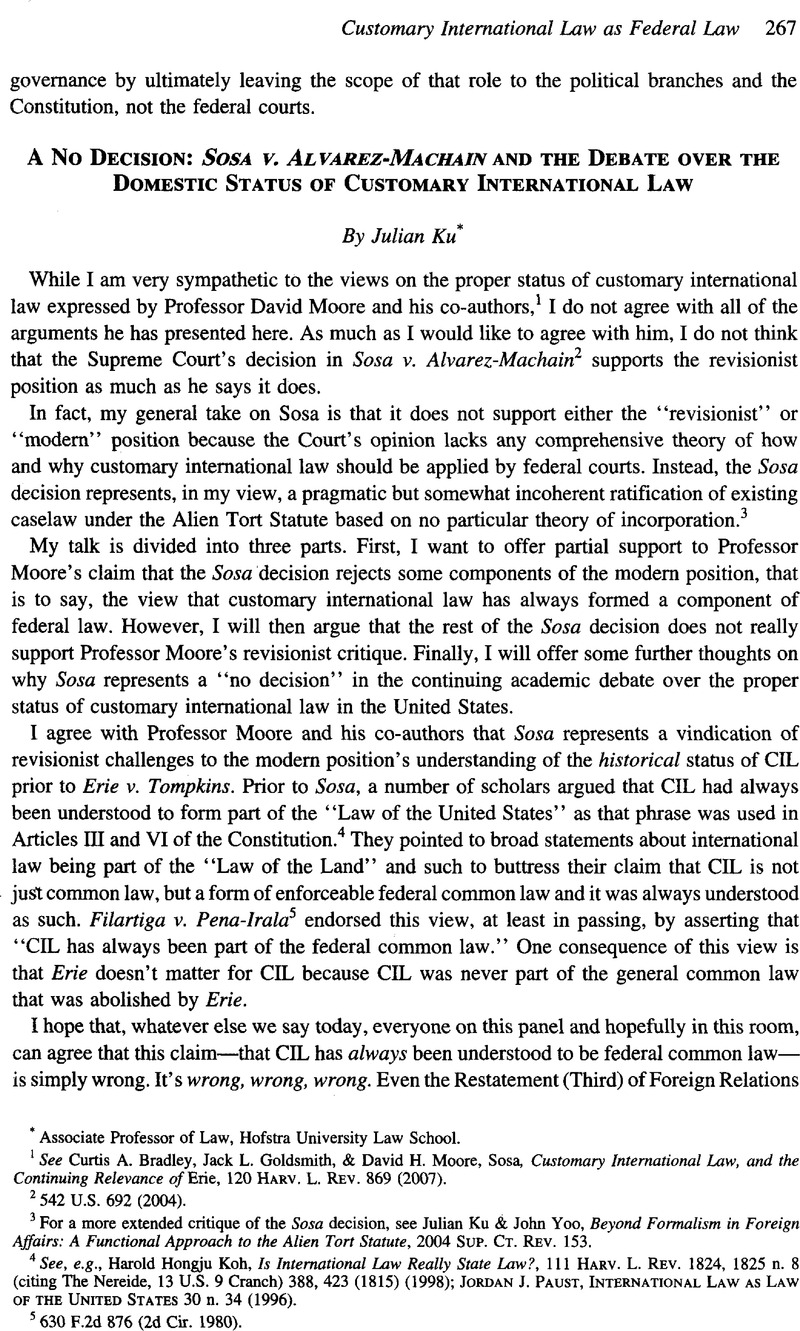Published online by Cambridge University Press: 28 February 2017

1 See Bradley, Curtis A., Goldsmith, Jack L., & Moore, David H., Sosa, Customary International Law, and the Continuing Relevance of Erie, 120 Harv. L. Rev. 869 (2007)Google Scholar.
2 542 U.S. 692 (2004).
3 For a more extended critique of the Sosa decision, see Ku, Julian & Yoo, John, Beyond Formalism in Foreign Affairs: A Functional Approach to the Alien Tort Statute, 2004 Sup. CT. Rev. 153 Google Scholar.
4 See, e.g., Koh, Harold Hongju, Is International Law Really State Law?, 111 Harv. L. Rev. 1824, 1825 n. 8 CrossRefGoogle Scholar (citing the Nereide, 13 U.S. 9 Cranch) 388, 423 (1815) (1998); Paust, Jordan J., International Law As Law of the United States 30 n. 34 (1996)Google Scholar.
5 630 F.2d 876 (2d Cir. 1980).
6 See Restatement (Third) of the Foreign Relations Law of the United States, § 111 n. 3 (1987).
7 542 U.S. at 724 (acknowledging that at the time of the enactment of the Alien Tort Statute, the accepted conception was of the common law as ‘a transcendental body of law outside of any particular State but obligatory within it unless and until changed by statute.’”).
8 Restatement (Third) of the Foreign Relations Law of the United States, § 111.